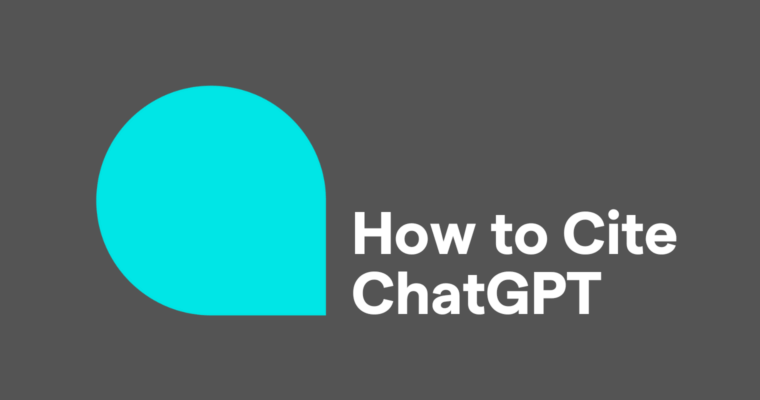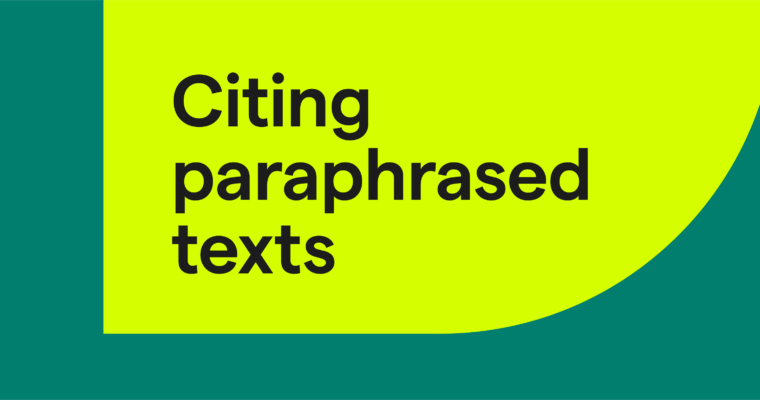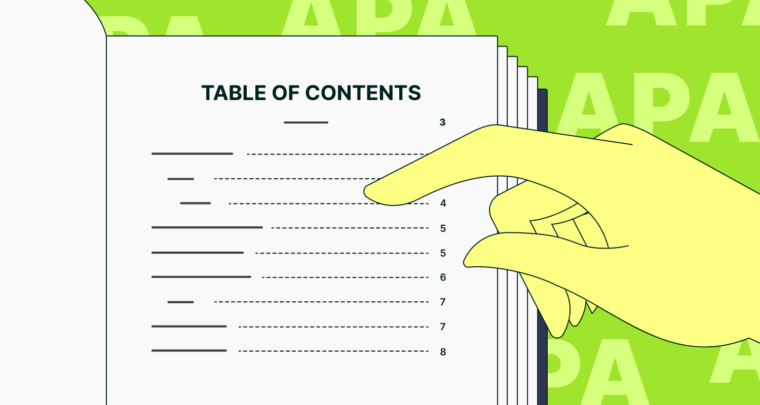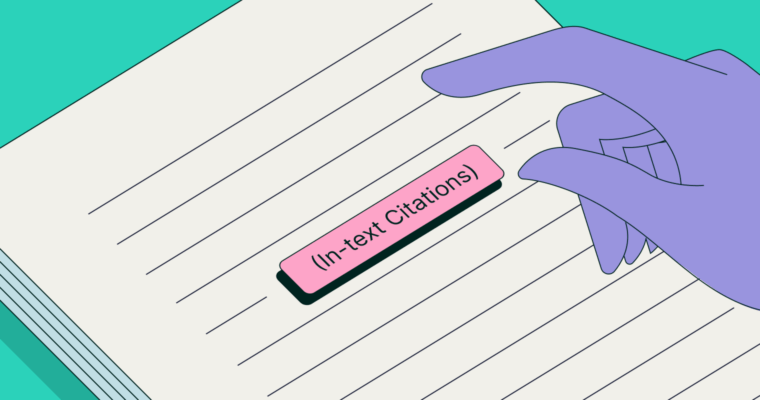Any time you use a fact, a figure, or other information from a source to support your position in a piece of academic writing, you need to cite the source you used for that information. This is true no matter where you got the information, be it a book, an article, a television show, or a live speech.
“Citing a source” notes information that came from a source other than your own observations or insights. It involves crediting that source’s author and publisher and including any other relevant information about the people and/or groups who created that source. If a piece of information you cite in your work came from a lecture you attended or a speech you listened to, your citation needs to credit the speaker, their platform, and when relevant, any others who contributed to the information you referenced.
Keep in mind that when you’re citing a review or an article about a speech or lecture, you’re citing a secondary source about the speech. Thus, you need to cite the article according to MLA’s guidelines for citing articles, not speeches.
The anatomy of an MLA-style speech or lecture citation
In MLA format, just like in other academic styles like APA and the Chicago Manual of Style, there are two ways to cite a source: in text and in the works cited (or bibliography) page.
In-text citation
In MLA format, an in-text citation for a speech or lecture is fairly simple. It’s the speaker’s last name in parentheses immediately after the cited or quoted information. It looks like this:
“If you aren’t embracing omnichannel marketing, you’re leaving money on the table” (Delilo).
There’s no need to start a new paragraph after an in-text citation.
Works cited page citation
Last name, First name of speaker. “Speech Title.” Conference where speech was
Here’s an example of how the citation would look with actual content:
Delilo, Amara. “How to Win at Marketing (and Have Fun while You’re Doing It!).”
What if I read the speech?
When referencing a speech or lecture that you read in print, rather than attended live, cite it using this format:
Last name, First name of speaker, Conference where speech was presented,
Example:
Jackson, Anthony, International Semiconductor Conference, 15 January 2020,
When citing sources on your works cited page, list them in alphabetical order by speaker/author’s surname.
How to cite an interview
Citing an interview is similar to citing a speech. However, the format varies depending on whether you conducted or attended the interview live, read or watched a published interview, or read an online-only interview.
Live interviews
If you conducted the interview you are citing, format your citation like this:
Last name, First name of interviewee. Personal interview. Interview date.
Example:
Heredia-Galdamez, Brian. Personal interview. 14 October 2015.
Note how in MLA format, dates are written as “Day Month Year.”
Print and broadcast interviews
Cite a print or broadcast interview similarly to how you would cite a journal article or an episode of a television series. In fact, if the interview was published in a journal or is otherwise part of a longer series, cite the series.
Use this format for an interview published in a periodical:
Last name, First name of interviewee. “Interview Title.”
Example:
Whainer, Alana. “Why Didn’t You Call Back?”
Use this same format for broadcast interviews, substituting the title of the program for the periodical’s title. Instead of a volume and/or a number, include the episode number, if applicable and available.
Example:
Khan, Awaiza. “My First Five Years in Business.” Business Leader Showcases, episode 16, 2009.If the interview doesn’t have a title, put “Interview by Interviewer’s Name” in place of a title.
Use this format to cite interviews published in books:
Last name, First name of interviewee. “Interview/Chapter Title.”
Example:
Fontes, Alex. “The Best Day Ever.” Our Greatest Days, Our Worst Days, Lena
Online-only interviews
Cite online-only interviews similarly to how you’d cite other kinds of interviews, substituting the interview’s URL for the periodical or series title. Here is the format:
Last name, First name of interviewee. Interview by Interviewer’s Name. Website Name, Sponsor’s or publisher’s name, Publication date, URL.
Example:
Sandoval, Brian. Interview by Pierre Charles.
How to cite a panel discussion or Q&A session
In MLA format, live panel discussions and Q&A sessions are cited a bit differently from formal lectures and presentations. Be sure to include the title “panelists” after the panelists’ names in your citation so your reader has context for the names and information cited.
Last name, First name of panelist, and Last name, First name of panelist, panelists. Panel discussion. Conference name, Discussion date, Location of conference, Hosting Organization/Institution, Location of host.
Example:
Singh, Opall, and Sorenson, Greta, panelists. Panel discussion. YA Publishers
This citation format is only for live discussions. Cite recorded panel discussions the same way you would cite a video.
What if there’s no date listed?
When you don’t know the date a speech or lecture was presented and can’t find this information, simply list n.d. in place of the speech’s date in your citation. This stands for “no date.” Alternatively, you can list the date you accessed the speech, noting as such: “Accessed 5 May 2022.”
What if I don’t know the venue (or one isn’t listed)?
Similarly, if no venue is listed for the speech or lecture you are citing, you can list the database where you accessed it.
Cite your sources with confidence
No matter what kind of academic writing you’re doing, citing your sources correctly is a critical part of the assignment. Before you submit your work to your instructor, always double-check that all your references are cited correctly—and that your work is free from grammatical and spelling mistakes.






